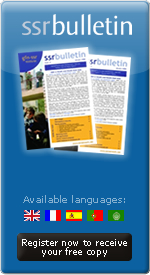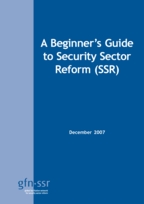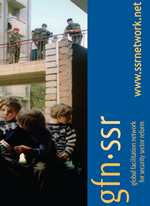Introduction and Background Sierra Leoneans are anxious to make their individual and collective efforts to improve their country and its institutions, as we try to put behind us the most recent, ugly episode of conflict which ended in 2002. To that end, we want to learn lessons from our recent history of war and subsequent…
Security System Transformation in Sierra Leone, 1997-2007 Restructuring the Republic of Sierra Leone Armed Forces (RSLAF) Major General Alfred Nelson-Williams1 Edited by Dr Paul Jackson, University of Birmingham Mr Peter Albrecht, International Alert The working paper series on Sierra Leone is part of the research programme ‘Security System Transformation in Sierra Leone, 1997-2007’. These working…
Security System Transformation in Sierra Leone, 1997-2007 United Kingdom (UK) Military Intervention and Progress in Sierra Leone 2001-2006 Brigadier Barry J Le Grys1 Edited by Dr Paul Jackson, University of Birmingham Mr Peter Albrecht, International Alert The working paper series on Sierra Leone is part of the research programme ‘Security System Transformation in Sierra Leone,…
This publication was commissioned by the UK Government Global Conflict Prevention Pool and written by the Global Facilitation Network for Security Sector Reform and International Alert. An electronic copy of this report can be obtained from the Global Facilitation Network for Security Sector Reform (GFN-SSR) at www.ssrnetwork.net/publications/gfn_ssr_publications.php The GFN-SSR promotes human security and development through…
Acknowledgements The review team wishes to thank all the individuals who gave generously their time, some submitting to multiple interviews. Without their assistance, this review could not have been undertaken. We are especially grateful to all British officials and support staff in Afghanistan, Lebanon, Nepal and Occupied Palestinian Territories (OPT) who organised our programmes, interrupted…
Foreword More than a decade after South Africa’s transition to democracy, our country remains for many a ‘model’ for other emerging democracies. South Africans, still grappling with the complexities of transformation, tend to be more cautious and humble when sharing their experiences. In my assessment, the aspects of our transition that have broad applicability are…
EXECUTIVE SUMMARY This research paper was commissioned by GFN-SSR as part of a help-desk support to inform HMG to report on its engagement in the context of Nepal. The query asked for illustrative examples and lessons of integration; in particular, examples of integration into armies, integration into non-military forces (police, armed police, intelligence, etc), and…
This study was coordinated, compiled and edited by Shivit Bakrania, Global Facilitation Network for Security Sector Reform (GFN-SSR). Individual country sections were authored by the following sub-regional research partners: Central Africa: Jean-Marie Gasana, Independent Consultant, Rwanda; Janine Rauch, Independent Consultant, Democratic Republic of Congo East Africa and the Horn of Africa: Jan Kamenju, Director, Security…
Introduction This literature review on security and justice was commissioned by DFID and is intended to support the preparation of the new DFID White Paper on ‘Securing our Common Future’. The purpose of the literature review is to find evidence to support the ‘case for security and justice’. The key question it asks is why…
The most important and vexed issue relating to governance of the intelligence services in a democracy is arguably that of secrecy. It is the most important issue because the higher the level of secrecy, the harder it is to ascertain and assess the features and performance of the services. In the absence of adequate information,…









